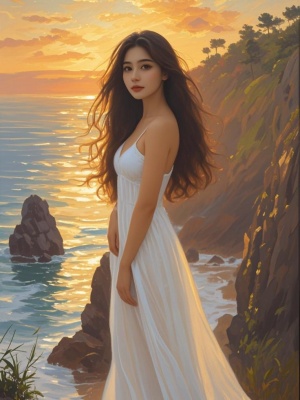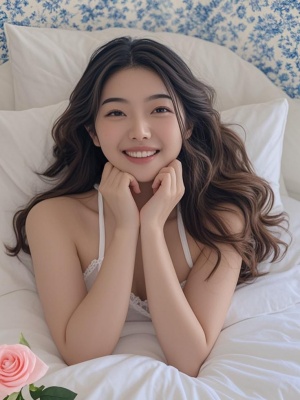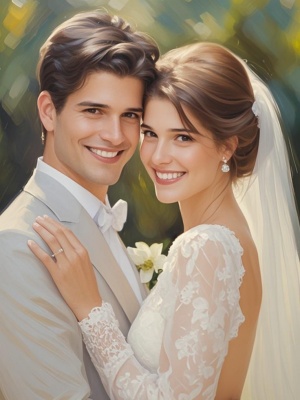The Timeless Art of Oil Portrait Painting
Oil portrait painting is one of the most revered and enduring art forms in history. With its rich textures, vibrant colors, and ability to capture the essence of a subject, oil painting has been the medium of choice for master artists for centuries. Whether you're an aspiring artist or an admirer of fine art, understanding the techniques, history, and modern applications of oil portrait painting can deepen your appreciation for this timeless craft.
The History and Evolution of Oil Portrait Painting
The origins of oil portrait painting date back to the early Renaissance period, when artists like Jan van Eyck perfected the technique of layering oil paints to create lifelike portraits. Unlike tempera or fresco, oil paints allowed for greater flexibility, blending, and depth, making them ideal for capturing the subtleties of human expression.
By the 17th century, masters such as Rembrandt and Velázquez elevated oil portrait painting to new heights, using techniques like chiaroscuro (the contrast of light and shadow) to add drama and realism. Today, contemporary artists continue to explore this medium, blending traditional methods with modern innovations.
Key Historical Milestones:
- 15th Century: Jan van Eyck pioneers oil painting techniques in Northern Europe.
- 17th Century: Baroque artists like Rembrandt refine portrait realism.
- 19th Century: Impressionists such as John Singer Sargent bring looser, expressive styles to oil portraiture.
- Modern Era: Digital tools and hybrid techniques expand the possibilities of oil portrait painting.
Essential Techniques for Oil Portrait Painting
Creating a compelling oil portrait requires mastery of several key techniques. Below, we outline the most critical steps and methods used by professional artists.
1. Underpainting and Composition
An effective oil portrait begins with a well-planned underpainting—a monochromatic base layer that establishes values and composition. Many artists use a technique called grisaille, which involves painting in shades of gray before adding color.
2. Layering and Glazing
Oil paints dry slowly, allowing artists to build layers for depth and luminosity. Glazing—applying thin, transparent layers of paint—enhances richness and creates a lifelike skin tone.
3. Brushwork and Texture
The choice of brushes (e.g., filberts, rounds, or flats) affects the final texture. Bold strokes can convey energy, while smooth blending achieves photorealism.

4. Capturing Likeness and Emotion
Beyond technical skill, a great portraitist must observe facial proportions, expressions, and personality. Tools like the AI Painting Guide can assist modern artists in refining their approach.
Common Challenges and Solutions

Even experienced artists encounter obstacles in oil portrait painting. Below, we address frequent issues and their solutions.

Problem: Skin Tones Appear Flat
Solution: Mix colors with subtle variations—adding hints of blue, green, or red—to mimic natural skin undertones. Reference Portrait to Art Detail for advanced tips.
Problem: Paint Dries Too Quickly
Solution: Use slow-drying mediums like linseed oil or work in sections (the "wet-on-wet" technique).
Problem: Difficulty Capturing a Likeness
Solution: Study facial anatomy and practice with portrait references or AI-assisted tools.
The Future of Oil Portrait Painting
While traditional methods remain foundational, technology is reshaping oil portrait painting. AI tools now assist with composition and color matching, and digital platforms enable artists to share their work globally. Hybrid techniques—combining oil paints with digital enhancements—are gaining traction, as seen in AI-generated art.
Despite these advancements, the essence of oil portrait painting endures: the ability to immortalize human emotion and identity on canvas.
Conclusion
Oil portrait painting is a dynamic art form that bridges tradition and innovation. From Renaissance masters to contemporary creators, artists continue to explore its depths, pushing boundaries while honoring time-tested techniques. Whether you're a beginner or a seasoned painter, mastering oil portraiture offers endless creative possibilities.
For further inspiration, explore our gallery or experiment with AI-assisted techniques to enhance your artistic journey.